I was lucky enough to get to attend a custom workshop by Critical Knowledge. They offered it as a part of the Survival Rally and accompanying fair. The topic was “Improvised wound treatment and emergency measures”. In fact they showed how to treat wounds after you stopped the bleed in cases where you can’t expect professional help to arrive within days.
The idea of the workshop was to show improvised techniques that should help with the survivability of wounds in extreme situations. Like during an expedition, during times of war or in a blackout scenario. That explains the big disclaimer that everything from this course is just meant for emergencies in extreme situations and prohibited to be applied under normal circumstances.
Parts of the workshop
The first, theoretical, part showed improvised methods of wound cleaning and how to make disinfecting mixtures. Another big part covered the question wether you should close a wound or not. There are good reasons to keep a wound open with a drainage or a lose cover. Especially when it it’s soiled with dirt. They showed also the basics for the practical, second, part.
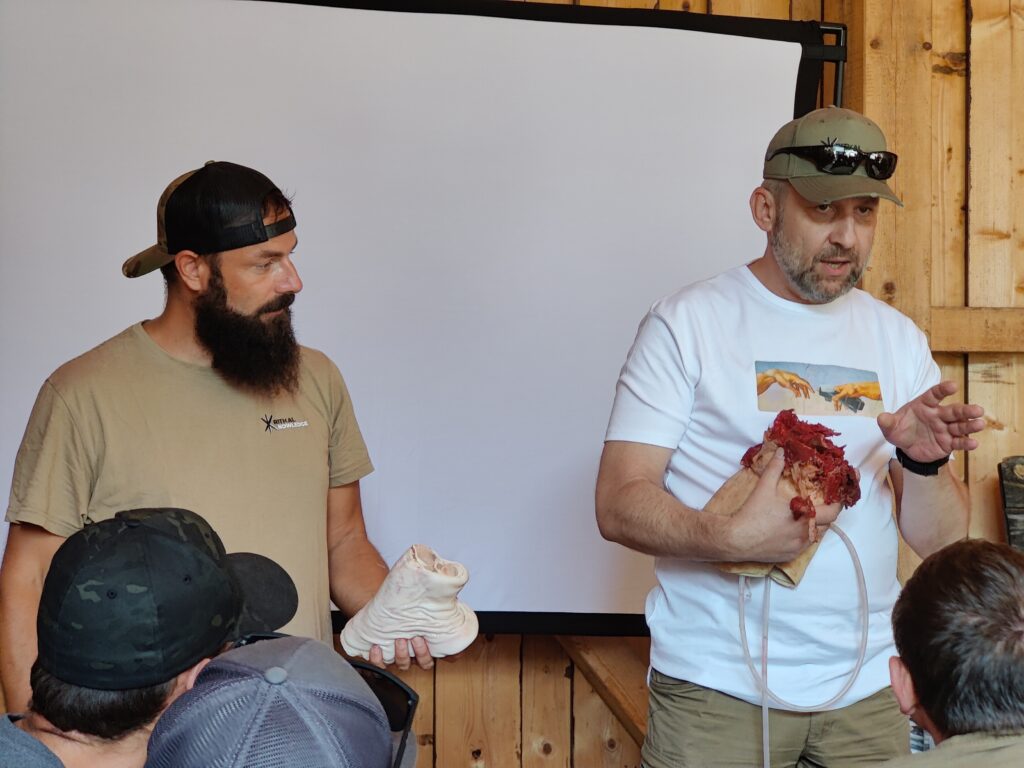
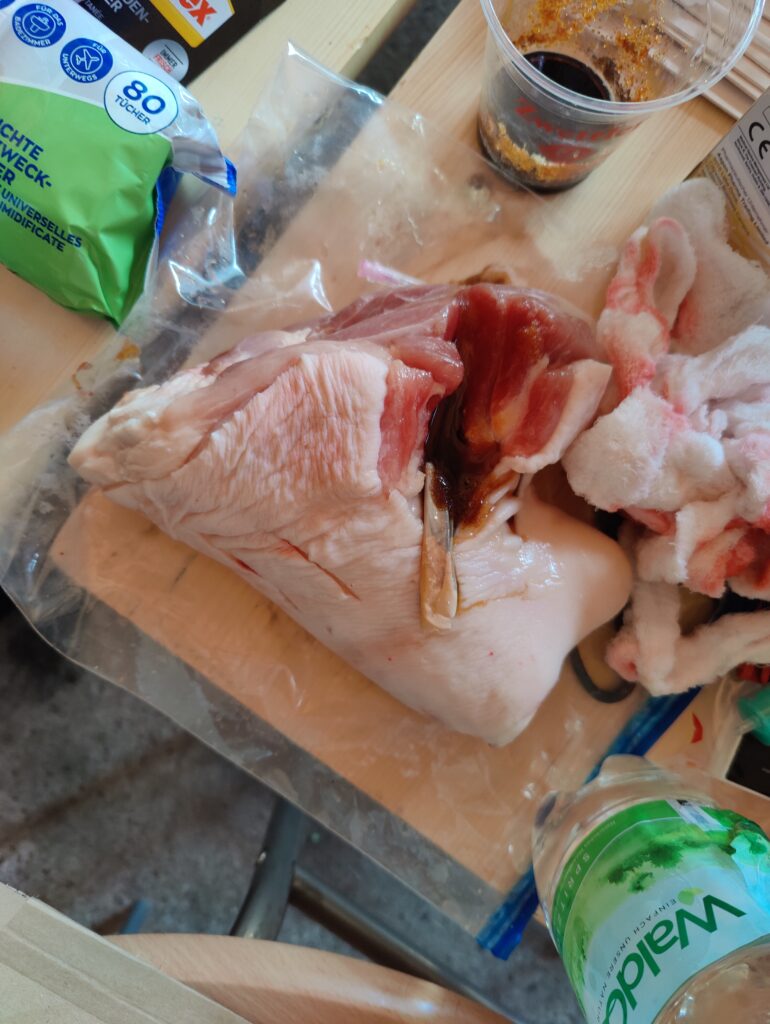
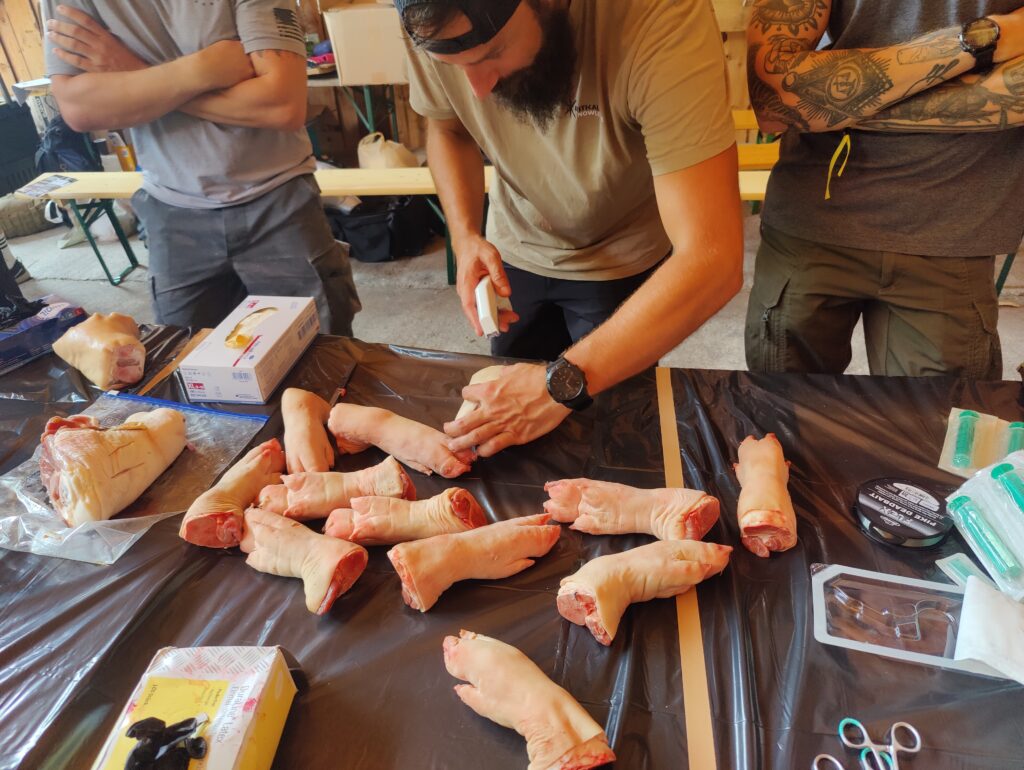
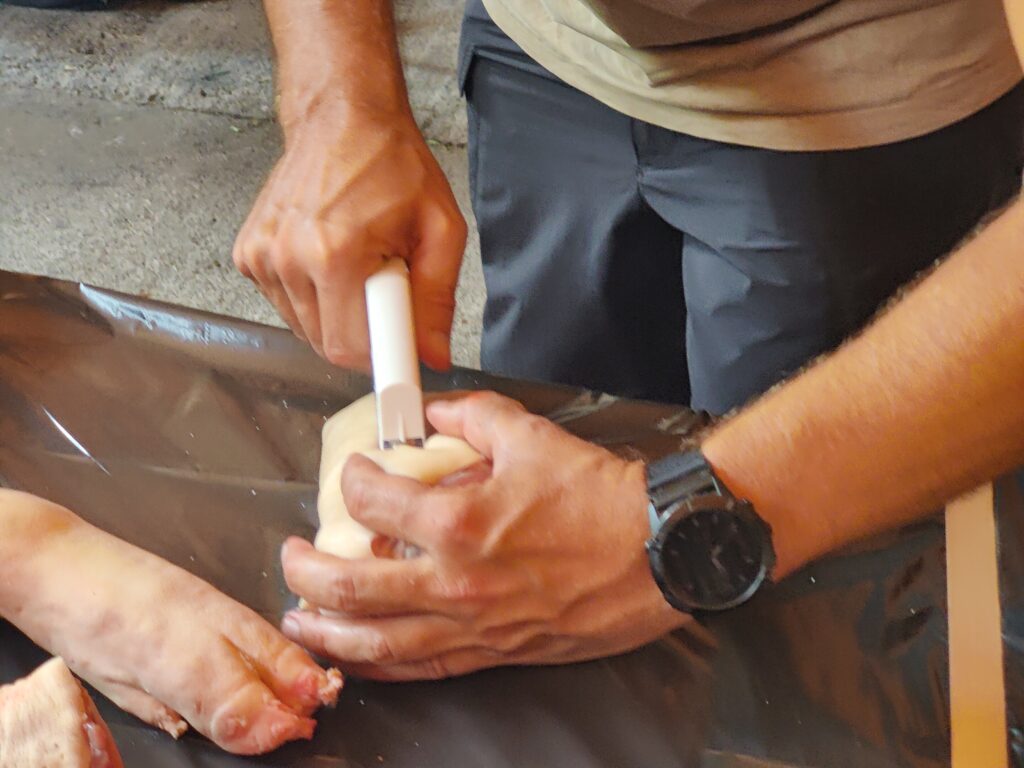
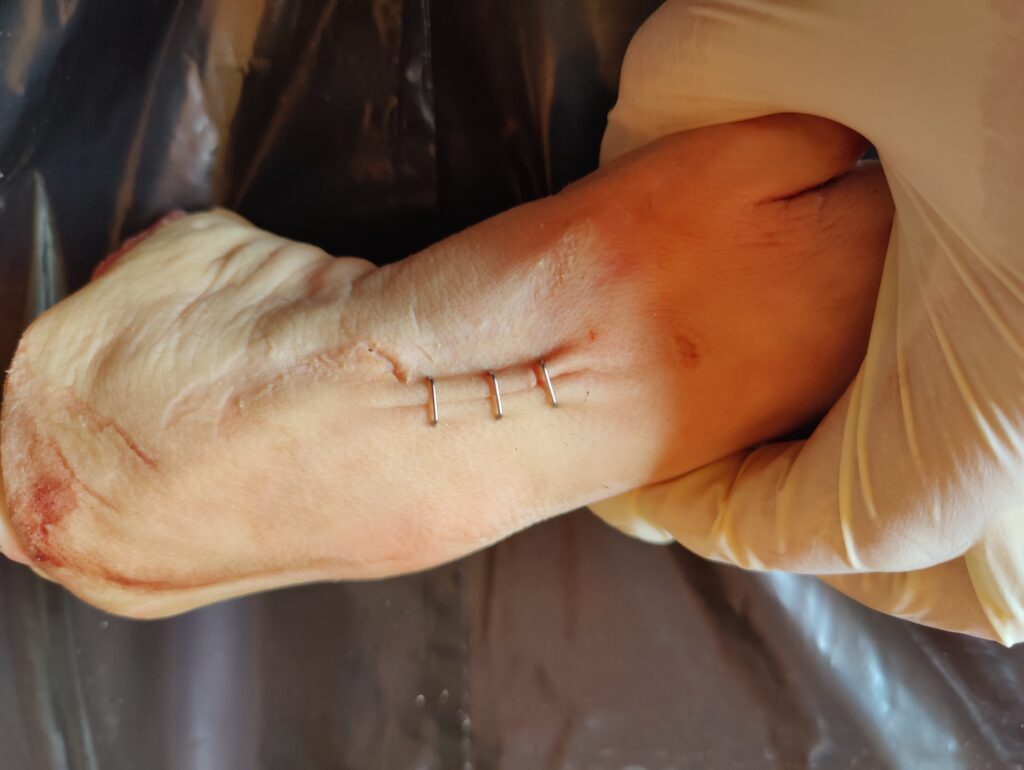
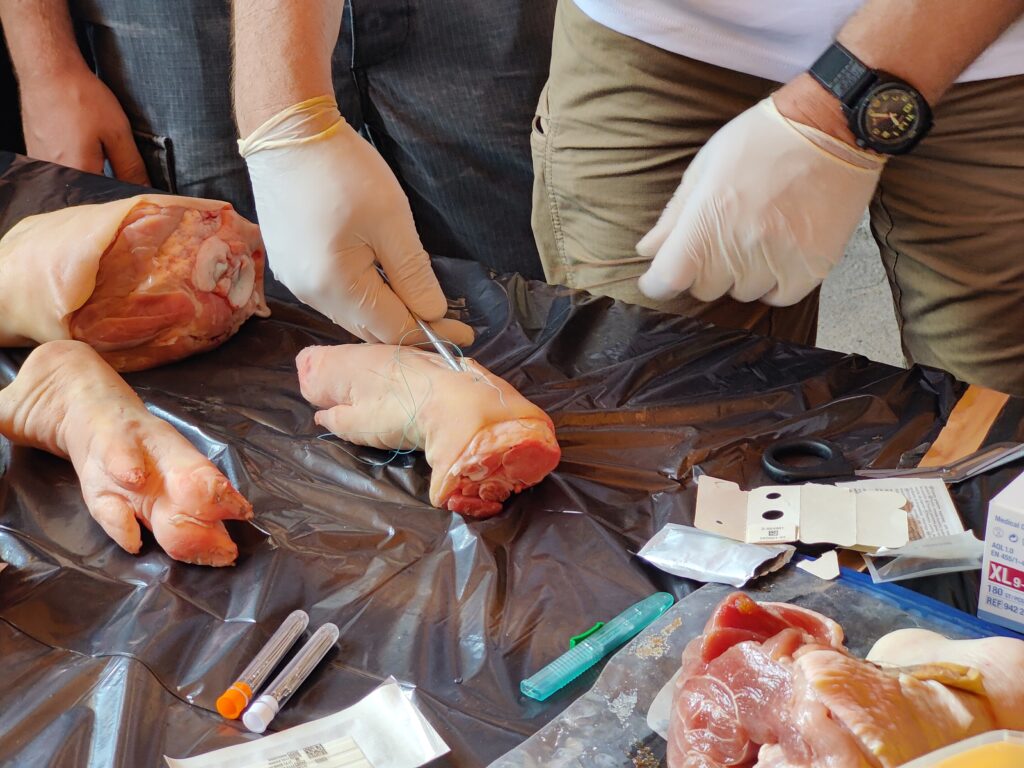
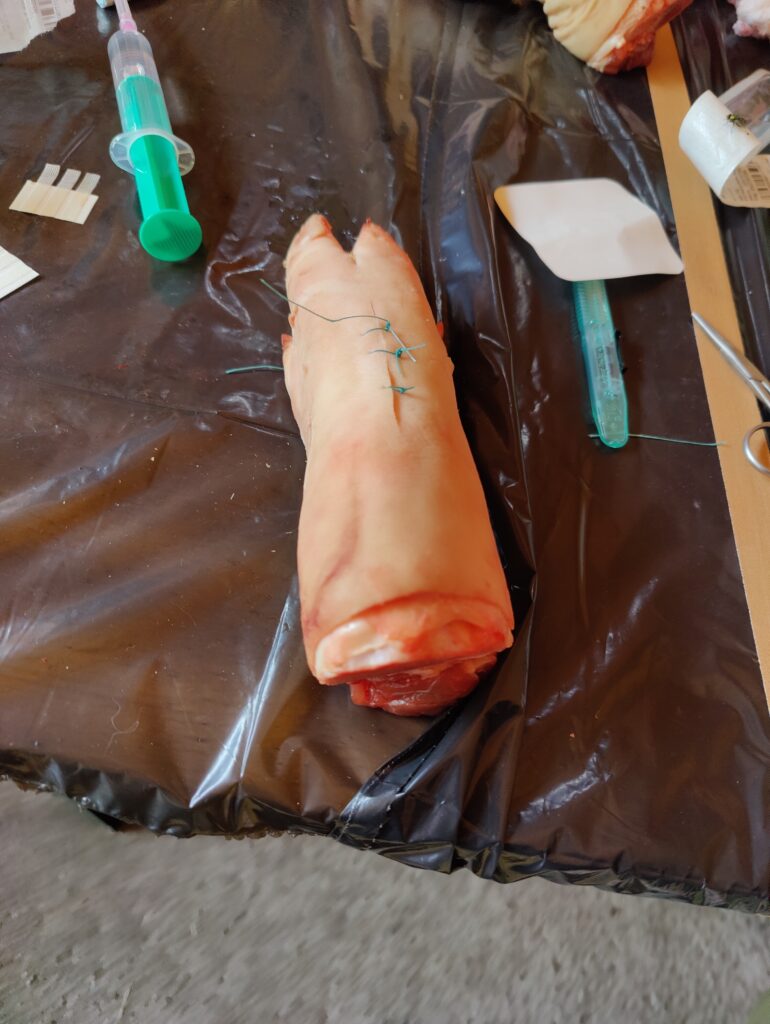
The second part was literally hands on. We covered the tables in plastic to not stain them and everyone got a foot of a pig. We cut several “wounds” in our “training material” and then applied what we learned. Different types of sticky strips and other professional equipment that you can buy before you need it were applied. While these methods are meant for smaller wounds, we also tried medical staplers and stitching up the wounds. Especially stitching up wounds is a topic that bothered me for quite some while. I’m really happy that I could now learn my first steps from professionals.
Alongside basic usage of medical gear you can buy “just in case” there were some lessons about improvising medical gear if everything else runs out. Showing how hard it is to stitch up a wound with a mix of normal sewing gear and a fishing line was very impressive.
Summing up the workshop
The whole workshop was quite intense. Not only did you learn a lot. But at least I always had to imagine doing this to an actual living human. One sentence stuck with me the most: “If you do this kind of training, you need to make it clear to your God(s) that you will have to do terrible things to prevent even worse things from happening. Do this before you find yourself in a situation where you have to make such a decision.” Ok, that was two sentences and I adjusted it a bit, but you get the idea.
Now I’m in the interesting situation that I learned things which I might never need. In fact I really hope that I will never need them. Whenever the situation is close to normal in the country where I live it’s always better to get professional treatment before applying anything from this workshop.
In my personal situation I had two major motivations for attending:
- I love to learn about (prolonged) first aid. It’s just a topic that fascinates me
- This is my kind of blackout preparations. I hope I covered the basics well enough. So this is the next step.
All in all it was a great workshop and I’m extremely happy that I was able to attend it. I’ll definitely stay in contact with the great people at Critical Knowledge. And this will not be the last workshop I booked from them. Not only do they know their stuff, they have a great way to teach. They really bring grave topics across in a way that will still keep you entertained. A perfect mixture of seriousness and some lighthearted jokes.
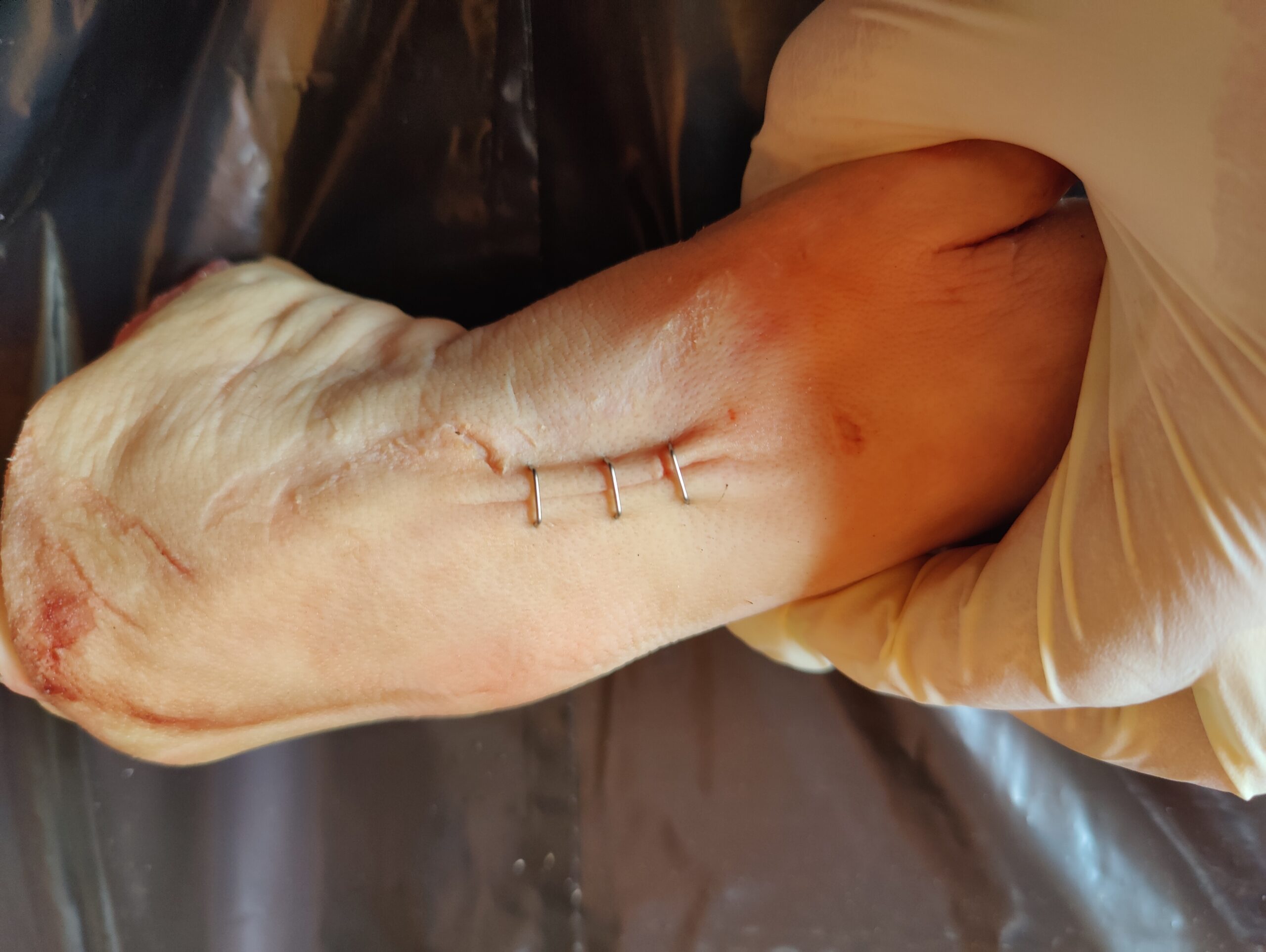
Hey guys!
Thank you very much for writing this article and for your appreciative report. We are always delighted when our workshops, which we put so much passion into, are well received by the participants, and we look forward to meeting again.
For anyone who would like to learn more, feel free to visit us on Instagram at @critical.knowledge !
Thanks again, and see you soon!